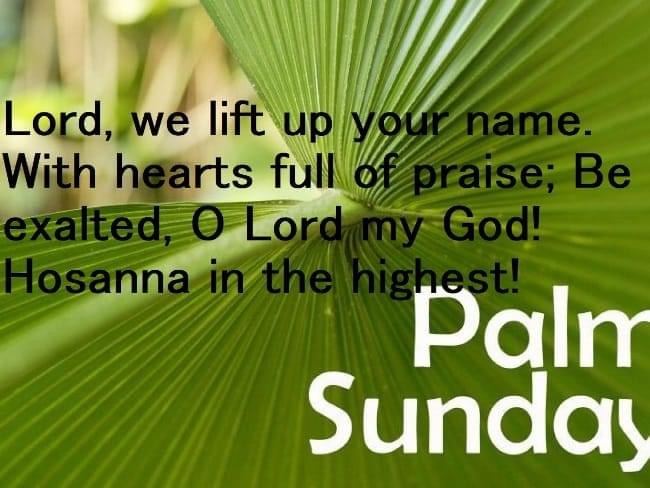What was the most memorable meal you have enjoyed? I am sure there are many such occasions, but I wonder which memory came to mind first and why?
In the earthly life and ministry of Jesus there is no question that the Last Supper Jesus held with His disciples in the days prior to His crucifixion was the one He and they would have named in response to such a question.
Take a few moments to read through Matthew’s account of this event in Matthew 26:17-30: On the first day of the Festival of Unleavened Bread, the disciples came to Jesus and asked, ‘Where do You want us to make preparations for You to eat the Passover?’ 18 He replied, ‘Go into the city to a certain man and tell him, “The Teacher says: My appointed time is near. I am going to celebrate the Passover with My disciples at your house.”’ 19 So the disciples did as Jesus had directed them and prepared the Passover. 20 When evening came, Jesus was reclining at the table with the Twelve. 21 And while they were eating, He said, ‘Truly I tell you, one of you will betray Me.’22 They were very sad and began to say to Him one after the other, ‘Surely you don’t mean me, Lord?’ 23 Jesus replied, ‘The one who has dipped his hand into the bowl with Me will betray Me. 24 The Son of Man will go just as it is written about Him. But woe to that man who betrays the Son of Man! It would be better for him if he had not been born.’ 25 Then Judas, the one who would betray Him, said, ‘Surely you don’t mean me, Rabbi?’ Jesus answered, ‘You have said so.’ 26 While they were eating, Jesus took bread, and when he Had given thanks, He broke it and gave it to His disciples, saying, ‘Take and eat; this is My body.’ 27 Then He took a cup, and when He had given thanks, He gave it to them, saying, ‘Drink from it, all of you. 28 This is My blood of the covenant, which is poured out for many for the forgiveness of sins. 29 I tell you, I will not drink from this fruit of the vine from now on until that day when I drink it new with you in My Father’s kingdom.’ 30 When they had sung a hymn, they went out to the Mount of Olives.
What should we learn from this meal for our reflections today?
1.It was a planned meal … My appointed time is near(Matthew 26:18) Jesus was well aware that the time was extremely short before He would be crucified. but wanted to make sure His first disciples understood at least in very simple terms what God’s plan was through these confusing events that week. At the time in their sadness the disciples heard words but it made little sense. Looking back some weeks later they finally started to grasp all that Jesus had patiently been teaching them. The events taking place in the life of Jesus that first Easter were planned by God the Father – but these participants failed to grasp what Jesus meant at the time.
It is okay sometimes to acknowledge that we don’t know or understand something. Then and now followers of Jesus live with their struggles. Is there something you want to mention to God in prayer? Something you are struggling with? It is important for us all to remember that God our heavenly Father is in ultimate control of our lives.
2. It was a prepared meal So the disciples did as Jesus had directed them and prepared the Passover (Matthew 26:19)The physical act of preparation was done by these two disciples. God can work supernaturally in extraordinary ways, but normally He uses our hands and feet and voices to praise and glorify His name. God wants to bring His transforming grace to work in many people’s lives this Easter. Your witness and mine is important as it is the only ‘Bible’ many people read. How are they likely to see Jesus in the light of our choices?
3. It was a prophetic meal ‘Take and eat; this is My body.’27 Then He took a cup, and when He had given thanks, He gave it to them, saying, ‘Drink from it, all of you. 28 This is My blood of the covenant, which is poured out for many for the forgiveness of sins. (Matthew 26:26b-28)
These symbols of bread and wine took on new meanings in the light of His sacrifice. They represented the incredible love of God for us. They teach us that no situation is hopeless where He is involved. The apostle Paul recognised this truth and in the light of Jesus’ sacrifice in our place on the cross explained its significance for us in these words from Romans 8:31-32:
31 What, then, shall we say in response to these things? If God is for us, who can be against us? 32 He who did not spare His own Son, but gave Him up for us all – how will He not also, along with Him, graciously give us all things?
The Last Supper was planned by Jesus to explain clearly to His followers what would happen next and why (see John’s Gospel chapters 13-17). Human hands prepared that meal and today God takes those willing to live for Him to accomplish His work in the world today. It was a prophetic meal. An event prepared to tell the story of the miraculous rescue of Jews from slavery in Egypt was transformed by Jesus to explain His death for us. God was not taken by surprise by anything that happened then or happens now and invites us to entrust our futures to Him. There is no-one better to trust to navigate for us through the storms of life.
Our song for reflection today is: ‘Come and see, come and see’ by Graham Kendrick
Brian Talbot


